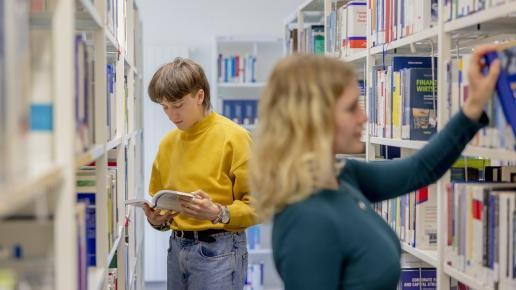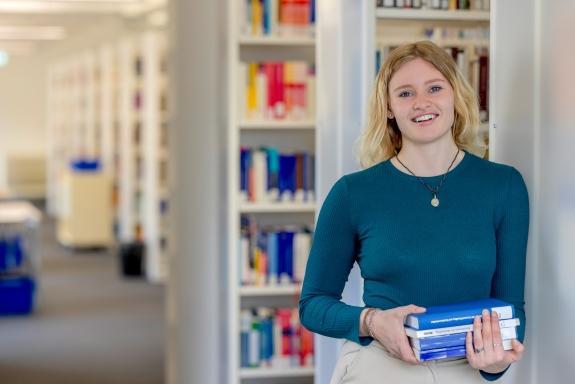Your future begins in Siegen
If you are interested in the connections between cultural education and educational theory, then our Master's degree program is the right place for you!
Here you will deal with topics such as education in pop culture, popular music, gamification or art in public space and reflect on mediation possibilities in (non-)educational institutions.
You will focus on the importance of cultural practices in the educational biographies of children, young people and adults. This includes not only artistic reception and production, but also different forms of everyday design.
The degree program is interdisciplinary and gives you valuable insights into subjects such as art, music, architecture, literature and media studies.
Everything at a glance
Career prospects
As a graduate of the Master's degree program, you can work, among other things
- in science
- at non-university research institutions
- in the field of cultural education (e.g. in youth art schools, cultural centers and associations, play mobiles or hands-on circuses)
- in various educational institutions (schools, social work, adult/further education)
- in cultural institutions (e.g. theaters, museums, libraries)
- in foundations, political parties, associations, NGOs or international organizations
- in the newspaper and publishing industry
- in the education departments of companies
- as a self-employed person in the educational or cultural sector
Students about studying educational science
Diverse opportunities for individual interests
"Personally, I can recommend the degree program because it enables personal contact with each other and with the lecturers, which is not necessarily the case and makes studying very pleasant. I also think it's great that the
elective area gives you a wide range of options when it comes to organizing your studies, so you can put together seminars and lectures according to your individual interests."
Personal study atmosphere
"The Master's degree course offers a research-oriented education with specialization options in areas such as adult education, school pedagogy and philosophy of education, allowing students to deepen their individual interests. The interdisciplinary course integrates knowledge from different subject areas, which leads to a comprehensive understanding of educational processes. Students can establish intensive contacts with fellow students and lecturers, which facilitates learning and creates a personal and supportive study atmosphere."
1) The academic degree of "Bachelor of Arts" in a degree course in "Educational Science", "Social Work" or "Education: Development and Inclusion". Admission is also granted to anyone who can provide proof of a comparable degree with a first professionally qualifying university degree.
2) A completed Bachelor's degree in teaching, in which at least one subject from an educational, social or cultural science field was studied and the Bachelor's thesis was written in educational science.
3) The Bachelor's degree qualifying for admission must have been passed with a grade of at least "good" (2.5).
4) A completed Master's degree in the teaching profession, in which at least one subject from an educational, social or cultural science field was studied.
5) The examination board of the degree program decides on admission to the Master's degree program.
The current examination regulations always apply.
Examination regulations/study plans/module handbooks
Subject examination regulations (FPOs) define the basic structures of a degree program (e.g. admission requirements and content to be studied). Students are automatically subject to the current version of an FPO when they enrol for their first semester. This means that even if the FPO changes during the course of studies, the version according to which you enrolled is valid (provided this FPO does not expire). The respective study plan represents the recommended exemplary course of study in the individual subjects and is part of an FPO.
Supplementary regulations and detailed information for each module to be studied can be found in the module handbooks (e.g. requirements for taking a written examination or content details of the modules/courses, ...).
Before the start of the lecture period, we recommend that you at least look at the study plan of your degree program so that you know which modules are planned for the start of your studies:
Good reasons for studying educational science at the University of Siegen
- Unique profile within educational science degree programs in Germany
- various interdisciplinary references allow a view beyond the horizon
- options for choice and organization allow students to study according to their interests
- excellent supervision ratio
- versatile career opportunities


